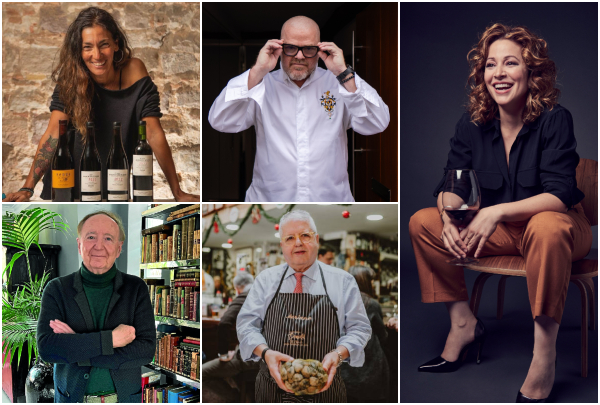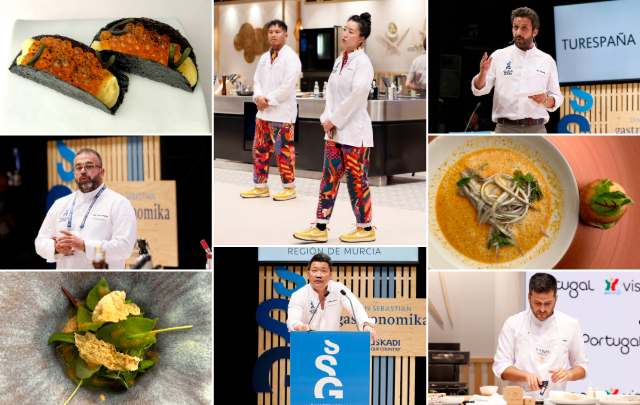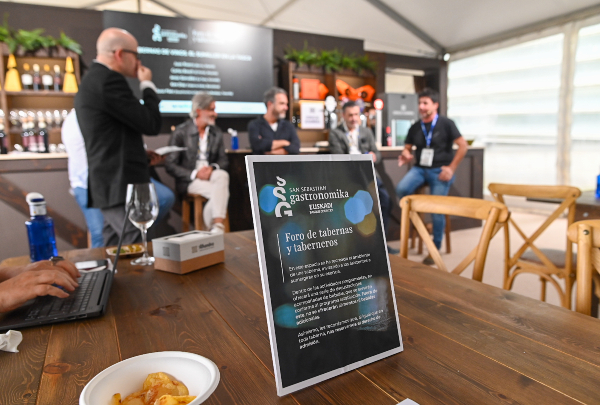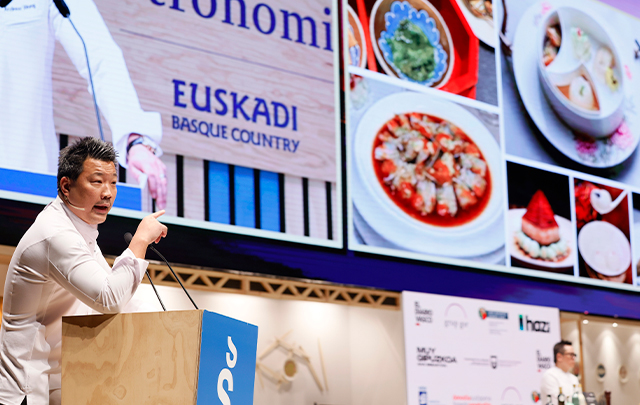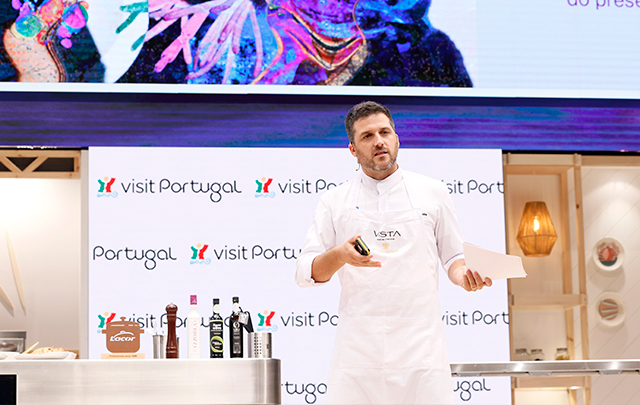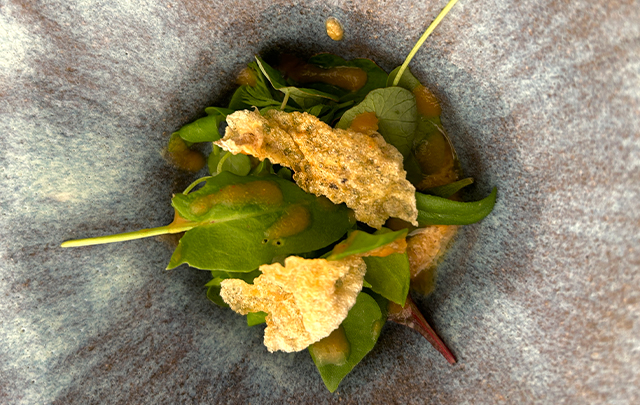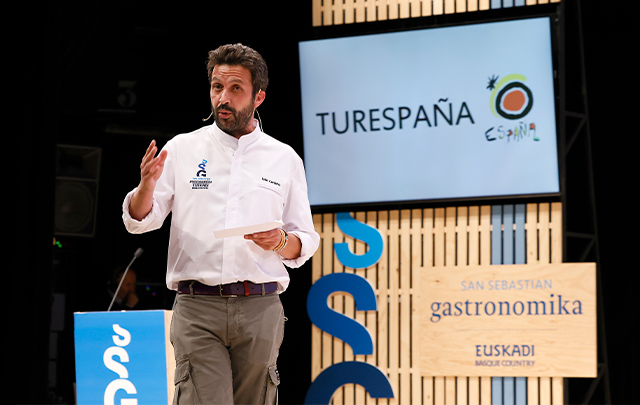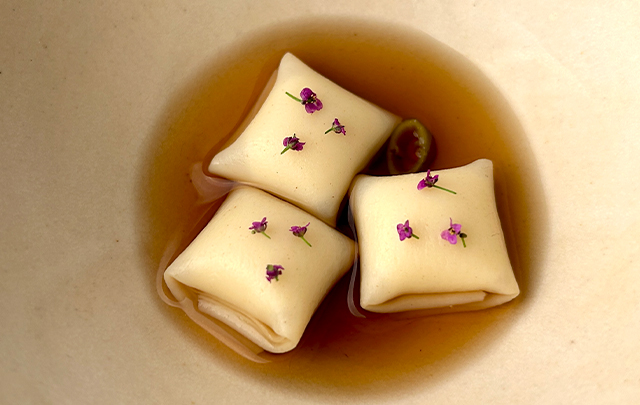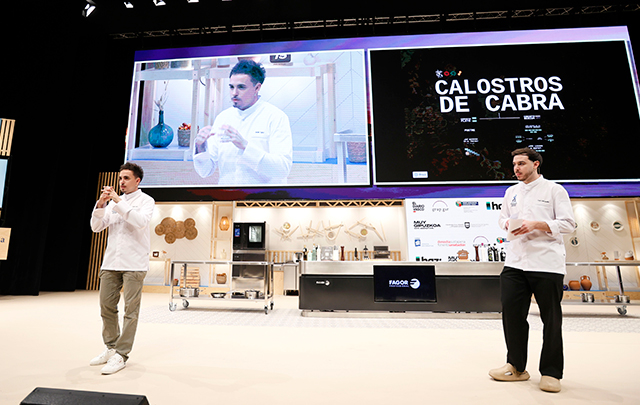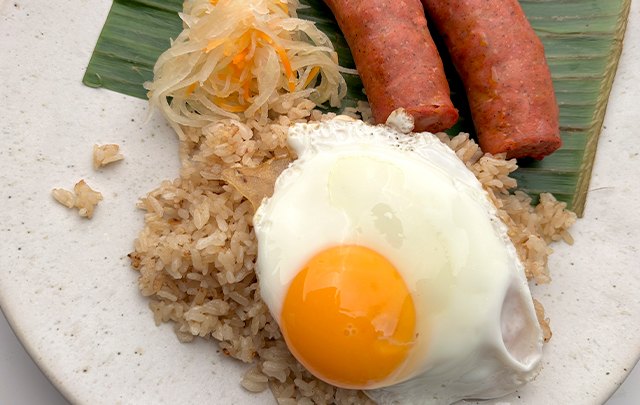News
How to create value around a predatory fish
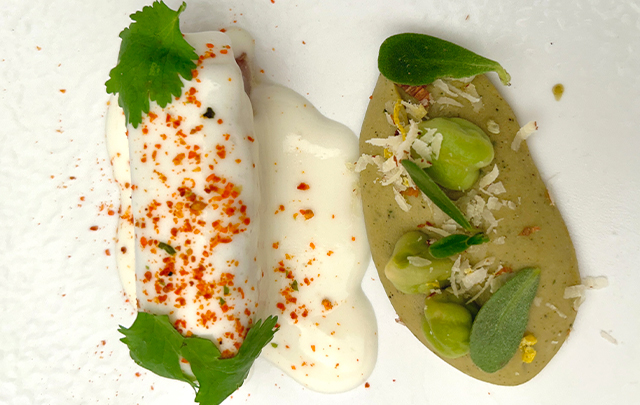
Rodrigo Castelo explains, recipe by recipe, how to use weeds or river predators to promote sustainability, seek balance and create economic interest.
Rodrigo Castelo (Ó Balcão*, Santarém, Portugal) was responsible for closing the presentations in the auditorium on Tuesday. He did so with a presentation entitled "Regenerative cooking: Between predators and weeds', in which he explained how they protect river fish in order to preserve native fish populations.
Castelo began by talking about regenerative cooking, which promotes sustainable practices, improves soil health and adds value to the soil. He then discussed the problem of weeds, pests and predators that destroy everything. "Cooking predators is important for nutrition, but also for the ecosystem," he summed up.
Later he began to prepare several recipes. The first was a bean and wild boar taco with fermented chillies, which uses a spontaneous plant such as green oregano and is an example of regenerative cooking from a different perspective.
Then he prepared a "tartato de marisco do rio". In his kitchen, in one way or another, they use all the seafood for coral, bisque, carpaccio and croquant.... They clean it for a week and prepare it with coriander, spicy oil, radish, lemon, roasted garlic... and wild fennel, another spontaneous plant.
Carp, "a very important species for the river", is prepared cured and smoked. In this case, the whole piece is also used in different ways. In the recipe he proposes, its belly is accompanied by beef tongue, old beef jerky and soft and hard bottargas.
The pike, 'the second largest non-native predator in the river', is salt-cured in a formula very similar to cod. It is cooked with a puree of green chickpeas, spices and vegetable powders, and two spontaneous plants such as coriander and purslane, and is 'a way of creating economic value around an invasive species that fishermen will want to catch, and in turn control the species'.
An incentive to fish He prepares the catfish with a cabbage and chorizo emulsion and a pea and onion salad, using wild mustard, another spontaneous plant. We are talking about the most important predator in the river, and by highlighting this species, Castelo is also trying to encourage anglers to fish for it. "The catfish has to eat 10% of its weight every day", with all the damage this does to its equilibrium.
The 'Our garden' recipe uses what the garden gives them every day, and with all the resources, they enhance the textures and flavours without wasting anything with a vegetarian and zero-kilometre dish. Nettles and shearwaters are never missing from this dish. We are lucky to have our own garden and an incredible market gardener, but what we can't grow we buy from farmers who follow this regenerative philosophy," he assured.
Finally, he prepared a dessert: pumpkin pudding, pumpkin and cream cheese.
Before concluding his presentation, Castelo pointed out that 'when we talk about sustainability, it is very important to see that this aspect is also about making money, and that means making the most of everything, but also creating an economy around some species that have not had one until now. In addition, the products must be used with respect and health in mind"

